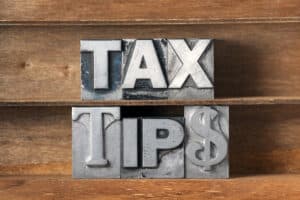


At Brown, Chism & Thompson , we understand the unique financial landscape freelancers navigate. Here are 7 tax tips for freelancers that are essential to help you stay on track.
Maintaining organized and accurate records is crucial for freelancers and our number one of 7 tax tips for freelancers. Invest in accounting software or use spreadsheets to track your income and expenses. Ensure you save receipts for all business-related purchases, as these can significantly impact your tax deductions. Regularly updating your records will simplify your tax preparation process.
Freelancers are typically considered self-employed, which means you may be subject to self-employment taxes in addition to income tax. Familiarize yourself with the IRS guidelines for self-employed individuals, including estimated tax payments that are typically due quarterly. Knowing your obligations helps you avoid penalties and interest.
One of the significant advantages of freelancing is the ability to deduct business-related expenses. Common deductions include home office expenses, equipment purchases, software subscriptions, travel costs, and professional services. Keep in mind that these expenses must be both ordinary and necessary for your business to qualify for deductions.
As a freelancer, you can establish a retirement account like a SEP IRA or Solo 401(k). Contributions to these accounts can be tax-deductible, which can lower your taxable income. Additionally, these accounts allow you to save for retirement while reducing your current tax burden, an essential strategy for long-term financial security.
To avoid the shock of a large tax bill at the end of the year, it’s wise to set aside a percentage of your income for taxes throughout the year. A common recommendation is to reserve 25-30% of your earnings. This practice not only prepares you for your tax obligations but also helps you manage your cash flow more effectively.
Navigating the complexities of tax laws can be challenging, especially for freelancers with variable income. Engaging a tax professional can provide you with personalized advice, help you identify additional deductions, and ensure your compliance with tax regulations. A professional can also assist you in tax planning strategies to maximize your financial benefits.
Tax laws are subject to change, and staying informed about new regulations and updates is vital for freelancers. Subscribe to IRS updates, follow reputable financial news sources, and consider attending workshops or webinars focused on tax issues relevant to freelancers. Knowledge is your best defense against potential pitfalls.
Being a freelancer offers flexibility and the opportunity to pursue your passions, but it also comes with the responsibility of managing your finances and tax obligations. By implementing these 7 tax tips for freelancers, you can navigate your freelance journey with greater confidence and efficiency. At Brown, Chism & Thompson , we are dedicated to supporting freelancers like you in achieving financial clarity and compliance. If you have any questions or need assistance with your tax planning, don’t hesitate to reach out to our experienced team. Your success is our priority!
Site Design: © Copyright Forge Media ™